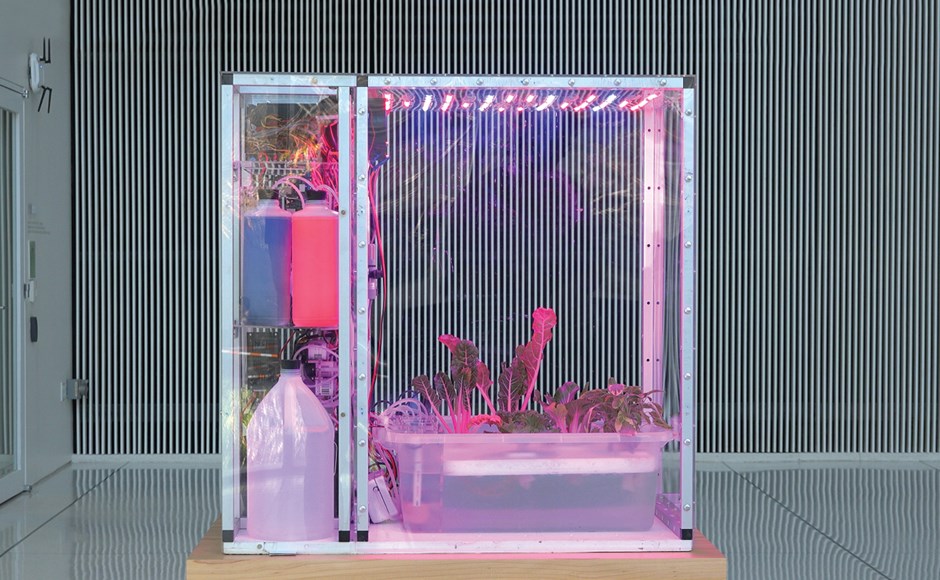Climate change will force major transformations in the global agricultural industry. In anticipation of this, “Big Ag” corporations have begun to invest in indoor farming techniques, which employ sophisticated technology to grow crops in highly controlled environments. Like all corporate farming innovations, the technology behind this is proprietary, ensuring that when traditional agriculture is no longer environmentally feasible, we will have no choice but to buy our food from Monsanto. But as Nina Sparling writes in Logic magazine, a small but growing “OpenAg” (Open Agriculture) movement has emerged, which seeks to develop indoor farming technology on an open-source basis. Despite its laudable ambitions, it’s not as antagonistic to corporate farming as it might seem. Here’s an excerpt from Sparling’s piece:
For all its idealism about disrupting Big Ag, OpenAg may ultimately help strengthen it—or reproduce it in a different form. Just because open-source projects give their source code away for free doesn’t mean they aren’t immensely useful for commercial enterprises. Today’s tech giants rely heavily on open-source projects.
The question, then, isn’t whether OpenAg will benefit business, but which businesses will benefit. Will traditional Big Ag companies like Monsanto embrace OpenAg research and development? Or is it more likely that we’ll see tech companies move into the space?
It’s too soon to know, but the signs seem to point towards tech. Already, the indoor farming industry has modeled itself more after tech companies than after agricultural ones. SoftBank’s Vision Fund—the world’s largest corporate venture fund—made the single biggest investment in agtech on record in Plenty, a vertical farming company based in South San Francisco. Jeff Bezos’s personal venture fund also invested in Plenty—a significant gesture, perhaps, given Amazon’s recent acquisition of Whole Foods.
It’s possible to picture OpenAg becoming big business in the near future. Imagine an Amazon warehouse that not only stocked toilet paper and televisions, but grew broccoli and lettuce—and sent you any of the above in the mail.
Image: A “personal food computer.” Via Maximum Yield.
